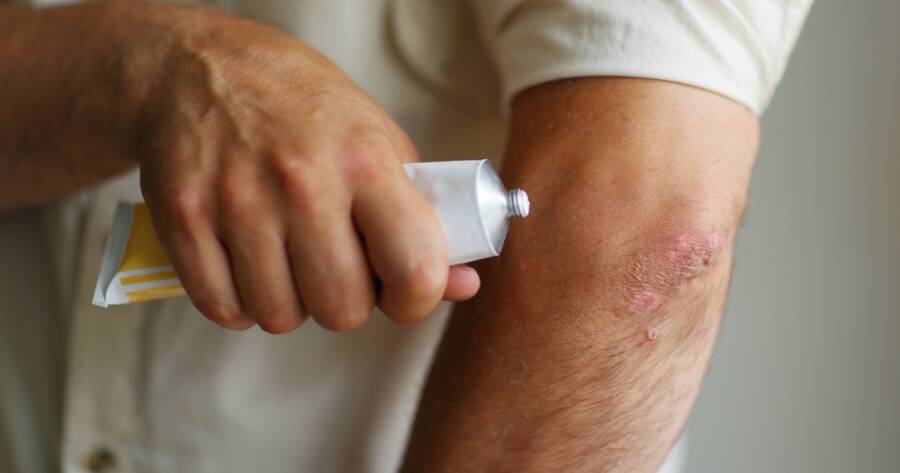Plaque psoriasis is one of the most common forms of psoriasis, affecting millions globally. This chronic inflammatory condition of the skin presents physical challenges and emotional burdens due to its visible nature. Understanding plaque psoriasis involves recognizing its symptoms, potential causes, and exploring available treatment options that may help manage it effectively. While there is no definitive cure, various therapeutic approaches could significantly alleviate symptoms, improving quality of life.
Recognizing Symptoms of Plaque Psoriasis
Plaque psoriasis is characterized by patches of raised, inflamed skin covered with silvery-white scales known as plaques. These plaques often appear on the elbows, knees, scalp, and lower back, although they may manifest anywhere on the body. The plaques can vary in size and, in more severe cases, may cover large body areas, contributing to discomfort.
The condition is also known for its cycle of flare-ups and remission. During flare-ups, individuals may experience increased redness, itching, and soreness in the affected areas. The intensity and frequency of these symptoms can differ significantly among individuals, ranging from minor irritation to severe pain and itching, potentially disrupting daily activities and sleep.
In addition to these skin manifestations, people with plaque psoriasis may experience changes in their nails, such as pitting or thickening, and may be more susceptible to developing psoriatic arthritis, which affects the joints. Recognizing these symptoms early might prompt timely medical consultation and management.
Exploring Causes and Risk Factors
The exact cause of plaque psoriasis remains under study, but it is generally thought to result from an overactive immune response. In individuals with psoriasis, the body’s immune system mistakenly attacks healthy skin cells, speeding up their growth cycle and leading to the formation of plaques.
Genetics appears to play a significant role, as psoriasis tends to run in families. Environmental factors can also trigger or exacerbate the condition, including stress, infections, skin injuries, and certain medications. Understanding and controlling these triggers can be key factors in managing flare-ups.
Lifestyle factors, such as obesity, smoking, and excessive alcohol consumption, have been linked with increased risk and severity of plaque psoriasis. These could potentially lead to more frequent or severe flare-ups, indicating that lifestyle modifications may be beneficial in managing symptoms.
Treatment Options for Plaque Psoriasis
A range of treatments exists for managing plaque psoriasis, with choices varying based on the severity and location of symptoms. Topical treatments are often the first line of defense, utilizing corticosteroids, vitamin D analogues, or tar preparations to reduce inflammation and slow skin cell growth. These medications could be effective for milder cases or localized plaques.
Phototherapy, or light therapy, utilizes natural or artificial ultraviolet light to slow cell turnover and reduce scaling. This therapy can be administered independently or in combination with topical treatments for more comprehensive management. Individuals undergoing phototherapy should work closely with their healthcare provider to monitor their progress and minimize potential side effects.
In more severe cases, systemic treatments may be necessary. These include oral medications or biologics, which target specific components of the immune system. Biologics represent an advanced treatment option, offering effective symptom control for some individuals. However, they require careful monitoring due to possible side effects and may not be suitable for everyone.
Complementary and Lifestyle Approaches
In addition to medical treatments, complementary and lifestyle approaches can support plaque psoriasis management. Stress-reduction techniques, such as yoga, meditation, or mindfulness, may alleviate psychological stress and potentially reduce the frequency of flare-ups. Engaging in regular physical activity and maintaining a healthy diet focused on anti-inflammatory foods like fish rich in omega-3 fatty acids, fruits, and vegetables might also contribute positively.
Skincare plays a crucial role in managing psoriasis. Regularly moisturizing with fragrance-free creams or ointments can help reduce dryness and scaling. Taking warm baths with added oils or colloidal oatmeal might soothe skin irritation.
It’s essential to recognize that complementary approaches should support (not replace) medical treatments. Always consult with a healthcare provider before commencing any new treatment or lifestyle change to align with professional medical advice and ensure personal safety.
Learn More About Plaque Psoriasis
Navigating plaque psoriasis requires a comprehensive understanding of its symptoms, causes, and potential treatments. By identifying symptoms early and exploring available treatment options, individuals may better manage flare-ups and enhance their quality of life. Integrating medical treatments with supportive lifestyle and complementary approaches might provide a balanced strategy for minimizing symptoms and avoiding triggers.
As research continues to advance understanding and treatment options, those affected by plaque psoriasis can remain optimistic about enhancing their skin health and overall well-being. Consulting healthcare professionals for personalized advice ensures decisions are informed and aligned with personal health goals.

